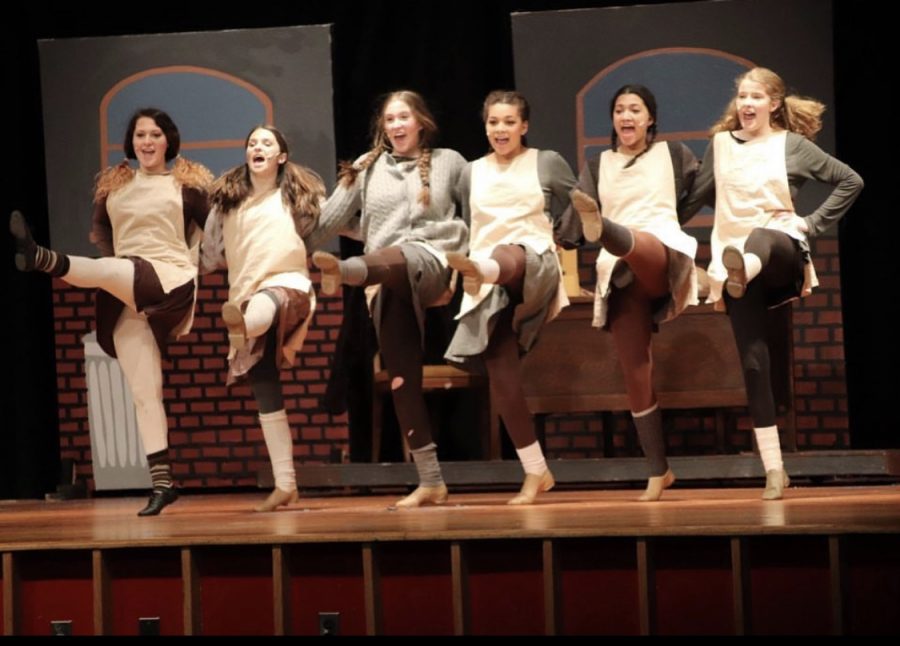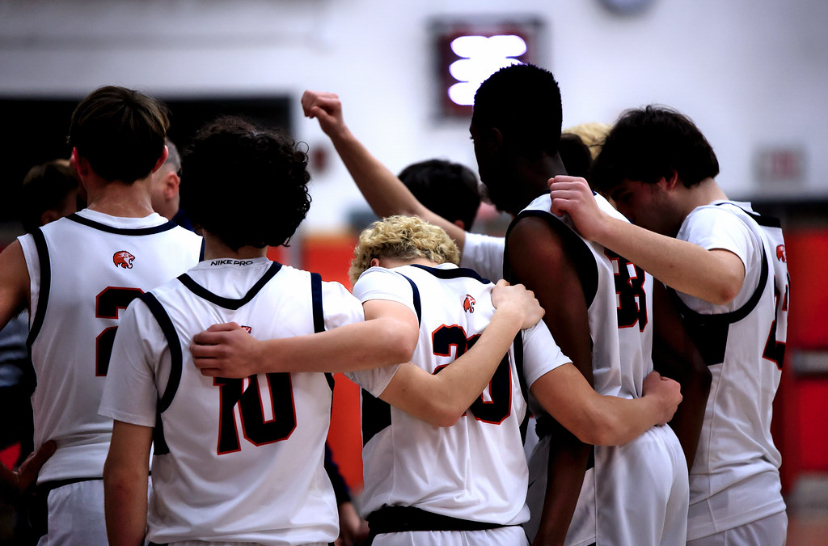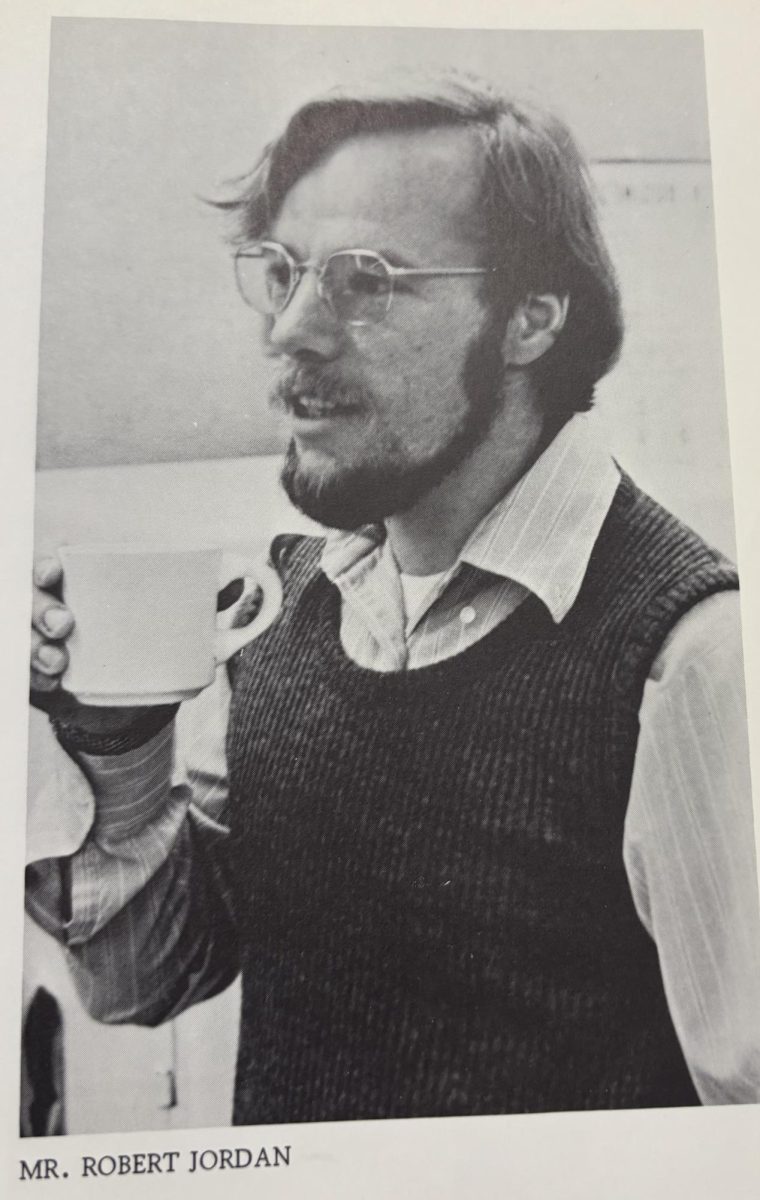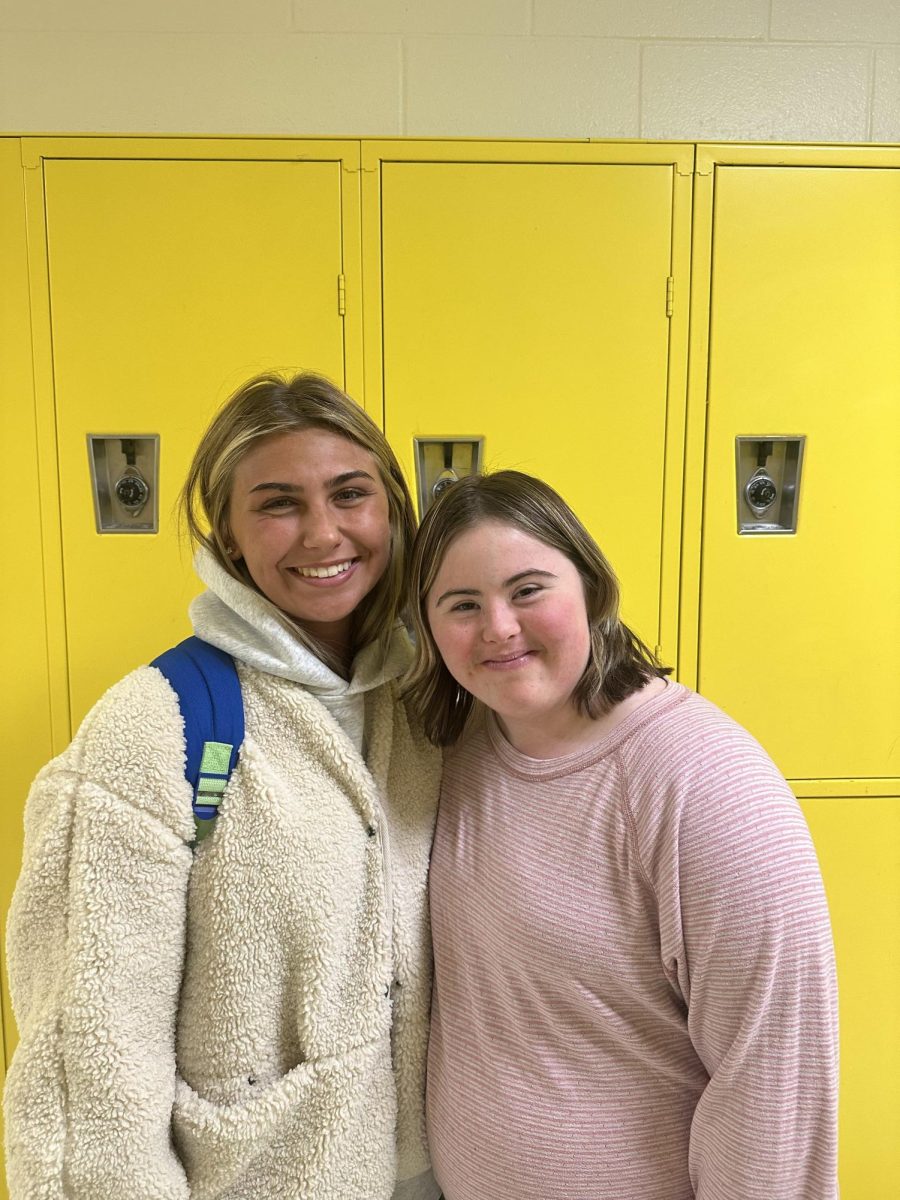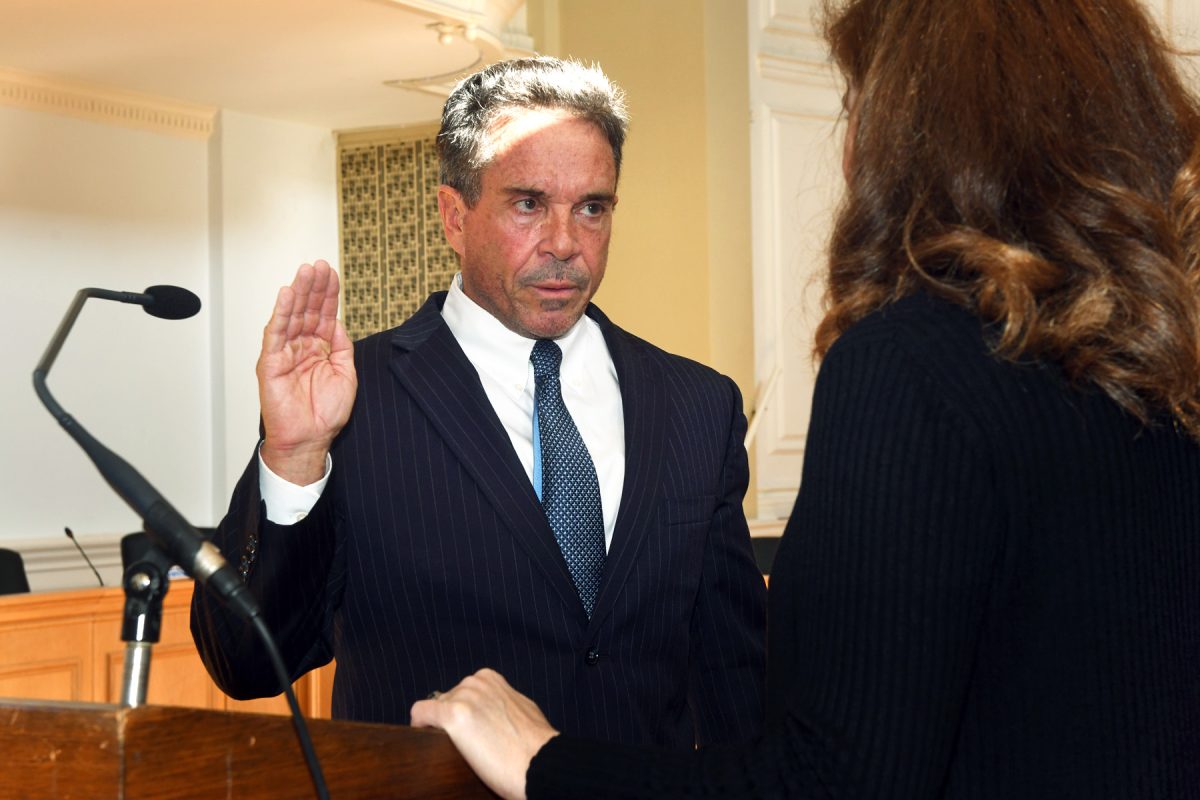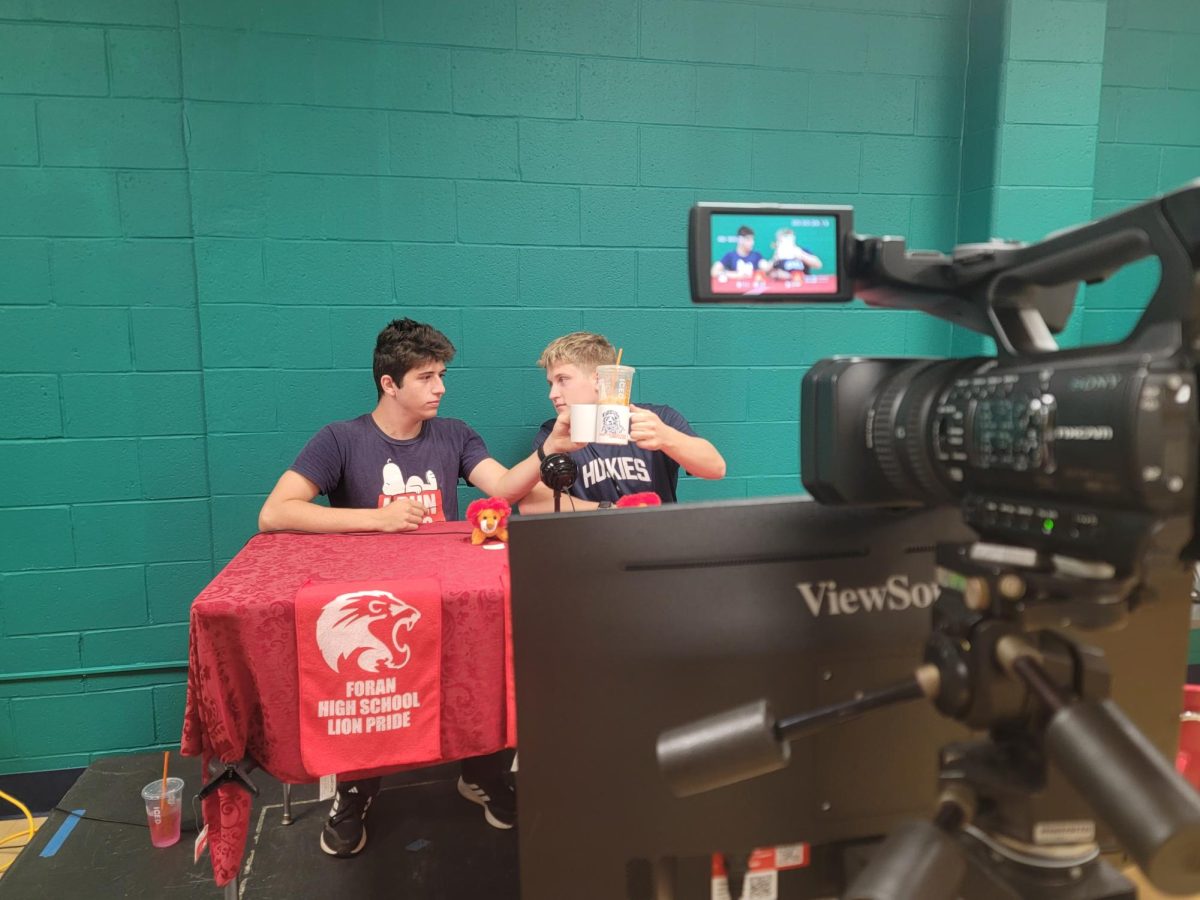The Importance of Performing Arts in Education
The Impact on the Community’s Youth
Senior Jenna King, center, performing as Duffy in Foran Drama Club’s production of Annie in 2019. Photo courtesy of Jenna King.
February 24, 2020
Since the birth of Shakespeare’s poetry, the arts have been influential to almost every person’s life. Whether you are simply listening to good music or watching a television show, being involved in some form of art is good for everyone. But what exactly does it do for a person?
The performing arts are more than singing and dancing on stage, it is about the opportunities that come along with the experience. According to The Scots College, in Sydney, Australia, the arts provide skills that you wouldn’t learn otherwise. It is a “discipline that encourages teamwork, whether that is in writing, creating or during the act of performing. Students have the opportunity to engage in creative collaboration, a skill they have limited chance to develop outside of a rehearsal space.”
The college believes that students involved in the arts have a better sense of critical reflection, collaboration, creativity, and communication. The arts community is small but creates a bond with every person involved due to refined skills the activity helps to practice.
Bonds created through the lifestyle of performing on stage can be seen through the everyday lives of students, including Senior Jenna King, who is currently involved with many performing arts activities, including choir, drama club, and band. She recently has started taking classes at the New Haven Academy of Performing Arts after partaking in their summer musical theatre program, “It was the most fun I’ve ever had while doing musical theatre. I started taking vocal lessons, musical theatre, acting, and dance classes and I’ve been performing in their cabarets for different holidays like Christmas and Halloween.”
King believes to have been attracted to the arts ever since her childhood, “Without my introduction to music, I don’t think I would be the same person I am today.” She says that ever since her enrollment in choir and band in elementary school, she has been able to express and connect with her creative self and it has increased her confidence in class.
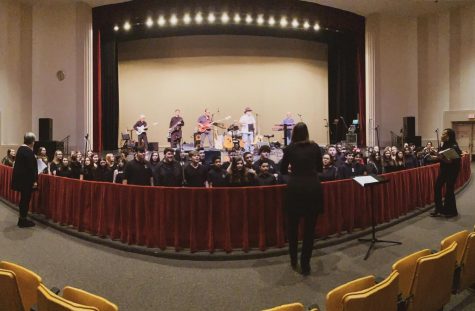
King’s attraction to the arts comes from a chemical in your brain called dopamine. According to the US National Library of Medicine, when a song reaches an emotional peak, a feel-good type hormone, called dopamine, is released. “Strong emotional responses to music lead to dopamine release in the mesolimbic striatum [a part of your brain], which can help explain why music is considered rewarding,” says Robert J. Zatorre, a psychology professor at McGill University. This is why music is often associated with therapies for relaxation; the release of dopamine sends a signal to your brain and makes you feel better. This feel-good attitude is why many people including King get heavily involved in the arts after being introduced.
Local musician, Jay Rowe has been involved in the performing arts since his days in elementary school. He says, “Ever since grammar school I have just loved music. I was a singer in chorus until about high school when my voice began to change and I couldn’t sing like Paul McCartney anymore, but I had always loved music and I knew that it would be my passion in life.”
Now as a professional musician, he uses his love for music to benefit those who wish to have an education surrounded by the arts, just like he had in his childhood. His benefit concert, “Smooth Jazz For Scholars,” has raised over $85,000 for the Milford Music Department and is still counting.
He is delighted to include Foran’s own advanced vocal ensemble among the line-up for the 18th Annual performance at Parson’s auditorium, alongside musicians from all over the world; including Paul Jackson Jr, who worked with famous artists including Micheal Jackson and Lionel Richie.
The arts are beneficial in the long run. According to neuropsychologist Catherine Loveday of the University of Westminster, when a student plays an instrument or is involved the arts in any way, they are automatically learning new ways of doing things creatively, “Executive function covers critical tasks like processing and retaining information, controlling behavior, making decisions, and problem-solving. If strengthened, you can boost your ability to live. Musical training can improve and strengthen executive functioning in both children and adults.” For instance, when a person learns new choreography, the part of your brain called the amygdala attempts to remember it and repeat it. Loveday says that this critical task of processing and retaining information, “If strengthened, can boost your ability to live.”
Music and the arts are very much around us in every setting. Whether you are listening to a new hit single, watching a new television show, or performing on stage, a piece of greater knowledge and awareness is put into the entertainment you have grown to love. So, whether you are a singer, musician, artist, or even a television viewer, the arts give you a chance to relax and enjoy its beauty.


